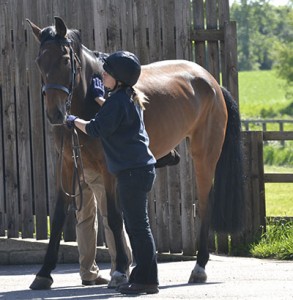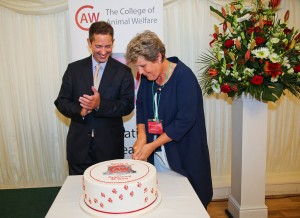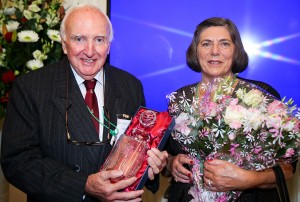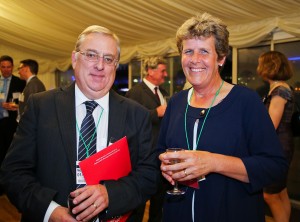Animal organisations call on responsible consumers to report bad ads to websites
Over 100,000 inappropriate, misleading or illegal adverts were removed in just six months this year by some of the UK’s biggest classified advertising websites following a hugely successful pilot scheme run by the Pet Advertising Advisory Group (PAAG) to regulate online pet sales. A six-month monitoring scheme was undertaken by trained volunteers from a number of animal welfare organisations in membership of PAAG. This vast number shows the level of commitment given by the participating websites to improving animal welfare and demonstrates how cooperation between PAAG and online classified websites can make a huge difference to the welfare of pets and the protection of consumers.
As the six month pilot scheme draws to a close, PAAG – which is made up of representatives from the UK’s leading animal welfare groups and trade associations – believes that animal lovers now have a huge opportunity to make a difference for the thousands of animals advertised online each day. The group is thus calling on the public to join the fight against bad adverts, reporting anything suspicious they find whilst browsing online classified pages directly to the sites themselves and informing PAAG where sites refuse to remove illegal or unscrupulous adverts from their pet sections.
From underage animals, banned breeds, illegally imported or endangered species to animals offered in exchange for inanimate objects, the adverts removed in the pilot scheme all contravened PAAG’s Minimum Standards which were launched in September 2013. Endorsed by Defra and supported by the Scottish Government, the Minimum Standards aim to improve the welfare of pets sold online by encouraging websites to filter out illegal, unethical and unscrupulous advertisements.
The classified advertising websites involved in the pilot scheme: Gumtree, Pets4Homes, PreLoved, Vivastreet, FridayAds and EPupz removed adverts highlighted by their own filters and those reported to them by PAAG Volunteer Moderators.
Clarissa Baldwin, Chairman of PAAG, says:
“The truly staggering number of adverts that have been blocked in the pilot scheme is a real eye-opener in terms of the scale of the problem in the UK… Unfortunately, despite the fantastic efforts of a number of the biggest UK websites, thousands of other websites continue to accept illegal, unethical and unscrupulous adverts. We are urging any classified website in the UK offering pets for sale to sign up to the Minimum Standards so that progress can be made towards ensuring that all adverts on these websites are from reputable individuals or breeders.”
Animal Welfare Minister Lord de Mauley said:
“We can all play a part in ensuring the welfare of pets sold online. If anyone sees a suspicious pet advert, from the sale of under-age animals to banned breeds, I would urge them to report it directly to the host site. If the advert isn’t removed quickly, they should contact the Pet Advertising Advisory Group straight away.”
The Minimum Standards are just the first step on the road to solving the problems related to the online sale of pets. Anyone with a serious concern about the welfare of an animal in an advert should notify the RSPCA, SSPCA, USPCA and PAAG at admin@paag.org.uk
To find out more information, please visit the paag website.


 Demonstrate the correct technique for handling, holding and restraining animals for examination
Demonstrate the correct technique for handling, holding and restraining animals for examination












 Special thanks was given to Graham and Moya Fuller who were presented with a beautiful lead crystal decanter and a bouquet of flowers. Mr Fuller OBE, former Chief Executive Officer of Wood Green Animal Shelters, was instrumental in setting up the College in 1989 as he believed that education was the key to tackling animal welfare and the problem of unwanted animals. The College is indebted to him for his support in establishing an education centre which was later to become The College of Animal Welfare when the concept was new and unproven.
Special thanks was given to Graham and Moya Fuller who were presented with a beautiful lead crystal decanter and a bouquet of flowers. Mr Fuller OBE, former Chief Executive Officer of Wood Green Animal Shelters, was instrumental in setting up the College in 1989 as he believed that education was the key to tackling animal welfare and the problem of unwanted animals. The College is indebted to him for his support in establishing an education centre which was later to become The College of Animal Welfare when the concept was new and unproven. Over the years, the College has grown, developed and diversified but has never lost its animal welfare roots. It continues to work closely with leading animal welfare organisations like the RSPCA, PDSA and the Blue Cross. Indeed, new online courses have been created with the RSPCA that are saving considerable sums in training costs, freeing up valuable financial and staff resources that enable them to focus on their main animal welfare work.
Over the years, the College has grown, developed and diversified but has never lost its animal welfare roots. It continues to work closely with leading animal welfare organisations like the RSPCA, PDSA and the Blue Cross. Indeed, new online courses have been created with the RSPCA that are saving considerable sums in training costs, freeing up valuable financial and staff resources that enable them to focus on their main animal welfare work.